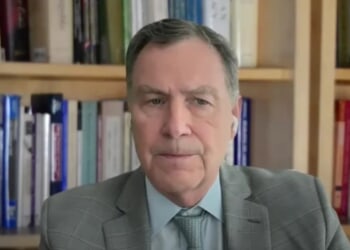Olga Matthias is CPF Chair of Wetherby and Easingwold Association. She spent two decades working with FTSE100 companies as a management consultant.
Oxford English Dictionary
ROUT raʊt/ verbgerund or present participle: routing – British English raʊtɪŋ/ ROW-ting
“defeat and cause to retreat in disorder”
It is fair to say that in July 2024 we were routed. We have been, to an extent, forced to retreat in disorder. Not only that, but we have been somewhat on the defensive. Obviously some contrition and apology for mistakes and mis-steps is a necessary condition for members, and the public, to forgive us. The mandatory period of mea culpa pronouncements and the eating of humble pie completed, hopefully convincingly, it is time to accept the past, archive it, and focus on what next.
Since November 2024, under our new leader, we have begun rallying round ‘Renewal’ as a strategic banner – indicating we shall be ready to resume our natural position as the party of government. Despite lacking any precision for the public, or even loyal party members, to rally round – to which I shall return – a new direction and renewal is vital.
What appears to be the working practice of proposing tweaks to Labour actions/policies, or to ideas previously proposed but not quite brought to fruition, is good as a placeholder activity while people settle into their Opposition roles. As the anniversary of the general election announcement approaches though, it feels we can, and should, be bolder in our thinking and in our pronouncements.
The Policy Commissions are key to demonstrating commitment to rebuilding, and doing so in the context of current global trends and events. Equally importantly is our commitment to rebuilding in a way true to who we are and what we have been. The fundamental key question we need to address is: “What is our philosophical stance?”
My reflections have led me to the conclusion that to address this key question, we must ‘go back to the future’’. This means summarising, synthesising and restating our values. They should be evident in every single development and announcement we make. When we are clear about our ‘philosophical stance’, others can be clear about what we represent. This means those roughly four million previously loyal to us, who turned their backs – whether directly, or indirectly by staying at home rather than nailing their flags to our mast at the election – can return, confident that their voices are once again represented by us.
In our hearts and minds we all know what the Conservative Party stands for: personal responsibility, small state, economic stability, continuity, respect, freedom of expression. The clues are everywhere – in the Party name: to conserve in our long-held, but latterly less-enacted, values. In theory, and ideally in practice, these values are the unchanging set of principles that explain who we are and demonstrated in all that we do. Our philosophical stance, essentially.
As a foundational principle it underpins our reliability, resilience and renewal. As we develop new policies in response to emerging challenges, remaining true to our philosophical stance ensures that the Conservative movement stays relevant and up to date whilst remaining true to core beliefs. In 2017-18, a broad party member consensus helped rearticulate the defining values to inspire our policies, for which an updated revision is being created. Such groundwork is vital.
The second step to ensure longevity and embed success is that work on expanding our philosophical stance takes place. This not only informs policy; it shapes it in a way that is consistent over time and with our values. It means that fundamental questions are asked and duly reflected over. None of them have an instant-fix answer, because generally they are the ‘wicked’ questions of our time. If we believe in small state, we have to be able to rationalise and then explain what that actually means. This involves difficult choices per se and an understanding of the implications for policy. It hopefully avoids, or at the very least minimises, the number of individually reasonable choices that together create severely negative unintended consequences.
Firstly, what, and how much, does Government need to do? Given party principles, it is a fair assumption that the current reach is too expansive, and indeed even the current Labour government is drawing those same conclusions. Whether social or financial, the simplest system possible without distorting either the market or societal structure is usually the most effective. The rational answer to this question could be along the lines that Government should carry out activities which are good for ‘society’ and, by association, good for the nation.
A modern economy with an undereducated population hinders growth and prosperity, so it is wise for government to provide that. Similarly health – a healthy population is one which can contribute to the nation’s wealth creation – but the extent to which Government has to be responsible for health must be counterbalanced by personal responsibility.
With regards to defence, complex and often opposing ideas need to be balanced to arrive at a workable plan. Similarly, immigration has become a hot potato issue which can no longer be ignored, nor fobbed off with a ‘racist’ barb, which in recent years has kicked whatever immediate issue into the long grass, for a short while. Dr David Starkey has also recently questioned the purpose of government, especially in the context of immigration. He argues, logically, that without borders you do not have a country, without a country you cannot have effective Government, without effective Government you have anarchy.
Our judiciary has generally brought stability through applying the law of the land, yet in recent years judges are undermining the concept of strong government by perverse interpretation of laws that appear to supersede national laws or interpretation for the national good. All of this needs to be considered through the prism of our philosophical stance so that we all know where our grounding is, what our foundations of beliefs, values, behaviours and therefore policies are in the round, not as individual knee-jerk ideas. With such consistency comes strength.
Once priorities have been developed through our philosophical prism, pragmatism dictates that they then be measured against pressing political goals – these are not just the immediate challenges, but also the long-term one of winning votes so that we can once again lead the country so that the national good prevails. This gives us the deeper challenge of pragmatism without principle dilution, to marry depth and pace of transformation with broad public appeal.
It is a long road to recovery, and even longer to renewal. The Conservative Party is uniquely placed to bring about both as long we are clear about our principles, what they mean in practice and how they are communicated to members and, ultimately, voters.







![NCAA Champ Salutes President Trump After ‘BIGGEST UPSET IN COLLEGE WRESTLING HISTORY’ [WATCH]](https://www.right2024.com/wp-content/uploads/2025/03/NCAA-Champ-Salutes-President-Trump-After-‘BIGGEST-UPSET-IN-COLLEGE-350x250.jpg)









